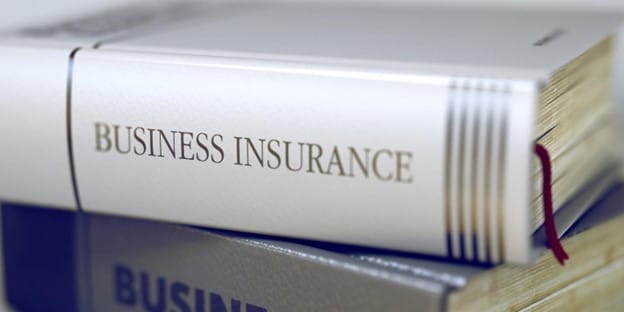Insuring businesses protects firms and company owners from unforeseen and adverse events, potentially stopping companies from going out of business, by providing coverage against business interruption, document loss, fires, legal fees, thefts, workplace accidents, liability claims, and various other incidents. Since companies operate with distinct risk profiles, a customized business insurance solution can be preferable to mitigate risk as efficiently as possible. Read more about the potential advantages of tailored business insurance and see how Wisterm, an employee benefits and insurance management consultancy, can assist clients with their business insurance concerns by contacting our offices today.
What Is BOP Insurance?
A BOP, or business owner’s policy, is a type of insurance combining business liability, business income, and commercial property insurance into a single insurance policy. BOP insurance covers firms from various types of claims, including:
- Fires
- Thefts
- Property damage
- Bodily injuries
- Advertising and personal injuries
According to the Insurance Information Institute (III), small- and medium-sized firms meeting specific criteria, taking into consideration liability limits, the business type, the company’s offsite activity, and premises size, typically obtain BOP insurance. The insurance premiums for BOPs can vary widely depending on a company’s financial stability, physical location, fire hazards, security features, and other factors.
What Does BOP Insurance Cover?
BOP coverages, like their premiums, can vary––but for coverages the variability is likely to depend on who is providing the policy and the needs of the firm. BOP insurance usually includes the following coverage as standard.
Business Property Insurance
Otherwise known as commercial property insurance, this type of coverage safeguards a business’s rented or owned premises, as well as the equipment and tools utilized to run the company. Commercial property insurance may also provide coverage for lost income if a covered loss prevents the business from continuing to operate while repairs or replacement takes place.
General Liability Insurance
General liability insurance shields a firm and company assets when facing a lawsuit; for example, if someone brought a negligence, property damage, slander, libel, or bodily injury claim against the business, the policy holder might file a claim with their business insurance company. While many businesses need general liability insurance, some firms may need additional types of liability insurance if they use vehicles as part of business operations, own or rent a storefront, or provide some types of professional services.
Business Income Insurance
Additionally referred to as business interruption insurance, business income coverage replaces lost income in the event that a company has to suspend its operations due to property damage, such as from a theft, hurricane, flood, or fire. Some policies may also provide extended business income, helping to cover a slowdown in business when the business reopens after an extended period.
How Important Is Business Insurance?
Below are some key points highlighting the importance of obtaining business insurance:
- Mitigate risk and financial losses: Business insurance helps protect firms against financial losses and reduce their risk exposure; without business insurance, a firm could encounter severe consequences if, for example, the company lost a laptop containing customers’ personal data, a consumer sued the firm after sustaining an injury on company premises, or a fire damaged the business’s inventory or office space.
- Safeguard employees: Many states stipulate that businesses have workers’ compensation insurance, which provides employees with various benefits such as missed wages or medical care when they sustain work-related illnesses or injuries.
- Protect customers: Getting business insurance can also be beneficial for a company’s customers; for example, if a consumer slips and falls on a business’s premises, requiring a hospital visit and medical treatment, the firm’s insurance can cover that individual’s medical expenses.
- Gain credibility: Correctly insuring a business may demonstrate to discerning consumers and partnering firms conducting due diligence that the company adopts a serious risk management approach. In some instances it may make sense for a business to provide transparency about the type of insurance it carries.
- Contractual requirements: Proof of business insurance is a common contractual requirement for client agreements, borrowing money, and commercial leases.
Further your understanding of tailored business insurance and explore how a consulting and insurance management firm can assist your business by reaching out to Wisterm.
What Is Tailoring in Insurance?
In this context, tailoring refers to customizing BOP insurance to the specific needs of a company by including coverage such as the following:
- Professional liability insurance: If a company is negligent in some aspect of its professional services, this insurance type can safeguard the firm.
- Data breach insurance: Data breach, or cyber, insurance covers the costs linked to technological risks, like cyberattacks or data breaches. Firms that handle customer information may want to consider cyber insurance to safeguard their finances and reputation against this type of loss.
- Commercial auto insurance: Useful for companies that require their employees to operate a vehicle for commercial reasons, insurance of this kind covers the costs associated with a vehicle accident when either the business owner or one of the company’s employees caused the incident.
Importance of Obtaining Tailored Business Insurance
BOP insurance includes standardized coverage that safeguards companies facing similar risks. However, acquiring tailored insurance shields against risks specific to that firm, maximizing the protection against damages and losses.
Do BOPs Have a Coinsurance Requirement?
BOPs commonly have coinsurance clauses concerning limits on property insurance, which specify the value of a company’s property holdings they are required to insure. For example, a business’s property may have a value of $1,000,000 and the coinsurance clause requires them to insure 80% of that value. The coinsurance clause lowers the claim payment made to a business if its limit on property insurance falls too short of the property’s actual value. Therefore, if the business only insured their property for $600,000, they would receive a reduced claim payment rather than being fully covered as they might expect.
Why Take Out Business Insurance?
Per the Small Business Administration (SBA), business insurance safeguards companies from the unforeseen costs associated with running their firms. Here are some other reasons why taking out business insurance can be beneficial for companies in a wide range of sizes and industries:
- Shields management: Firms may choose to include management liability insurance, commonly utilized by publicly traded businesses and nonprofit organizations, in their BOP policies, which shield the key players that help run an organization, such as the business owner or CEO, from potentially damaging lawsuits.
- Safeguards against environmental disasters: Many American states experience different kinds of natural disasters, such as tornadoes, flooding, and hurricanes. Having the appropriate business insurance policies may protect a company’s physical assets that could become damaged during these incidents.
- Assists with lawsuits: Companies may face lawsuits, such as from employees, consumers, suppliers, and other parties, in addition to legal fees, at any time, and business liability insurance may help cover these expenses.




